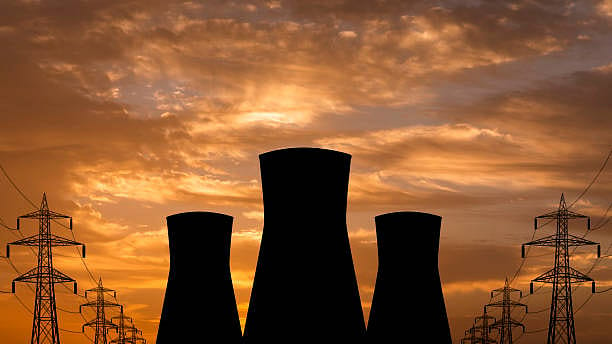North India's first nuclear project coming up in Haryana’s Gorakhpur
ADVERTISEMENT

North India's first nuclear project is coming up in Haryana in a small town called Gorakhpur. This was revealed by Union Minister Jitendra Singh in the Lok Sabha.
In a significant policy shift, the government is opening up the nuclear energy sector to private participation to accelerate expansion. Singh highlighted the upcoming Gorakhpur Nuclear Power Plant in Haryana, marking India’s first nuclear project in North India, as part of this broader vision.
In the Union Budget 2024-25, Finance Minister Nirmala Sitharaman announced allowing Bharat Small Reactors (BSRs) with private capital. BSRs, 220-megawatt pressurised heavy water reactors (PHWR), offer advantages over larger plants, such as flexibility in location, shorter construction times, and reduced costs.
The Nuclear Power Corporation of India (NPCIL), a government-owned entity, has issued a Request for Proposals (RFP) to Indian industries for the establishment of 220 MW Bharat Small Reactors (BSR) for dedicated use, marking the beginning of private sector involvement in nuclear energy production. Proposals must be submitted by March 31, 2025. The private entities will be responsible for building the projects under the oversight of NPCIL, and once completed, the assets will be handed over to NPCIL for operation under a long-term comprehensive agreement.
This move toward privatisation aligns with India’s vision to significantly increase nuclear energy's contribution to the country's electricity supply by 2047. As part of this strategy, the government aims to triple its nuclear power generation capacity by 2030, from the current 8.1 gigawatts (GW). Currently, NPCIL is the only organisation authorised to construct and operate civilian nuclear plants in India.
January 2026
Netflix, which has been in India for a decade, has successfully struck a balance between high-class premium content and pricing that attracts a range of customers. Find out how the U.S. streaming giant evolved in India, plus an exclusive interview with CEO Ted Sarandos. Also read about the Best Investments for 2026, and how rising growth and easing inflation will come in handy for finance minister Nirmala Sitharaman as she prepares Budget 2026.
The Union Minister reaffirming the government’s commitment to the Jaitapur Nuclear Power Project, calling it a critical step toward India’s clean energy future. Responding to concerns raised in the Lok Sabha, the Union minister clarified that environmental clearance for the project is under renewal and that necessary safeguards are in place to address ecological and safety concerns.
Singh emphasised that the government remains confident in the safety of the project despite objections from conservation groups and concerns about its location in a seismic zone. He stated that concerns about risks to marine life and local livelihoods have been raised repeatedly, and every time, the government has "tried to allay all these apprehensions that there is no such risk to the marine life, the fisheries, or the people living around, there are ample number of evidence-based studies to prove that." He further clarified that the environmental clearance had expired in December 2022 due to procedural delays, not because of any new environmental objections. “If there were very serious environmental hazards or any apprehension or evidence, then we would not have got the environment clearance even earlier,” he explained.
Tracing the project’s timeline, the Minister explained that while initial approvals were given in 2008, delays occurred due to shifts in agreements with French stakeholders. With technical agreements now finalised, discussions are ongoing to settle commercial terms with the French side. The Jaitapur plant, once operational, will house six nuclear reactors, each with a capacity of 1,730 MW, totalling 10,380 MW—accounting for 10% of India’s 100 GW nuclear energy target by 2047.
Addressing concerns about nuclear liability, Singh stated that India’s Civil Liability for Nuclear Damage (CLND) framework provides clear safeguards. The primary responsibility rests with the operator, and an insurance pool of ₹1,500 crore has been set up, with additional commitments from the government if required. Furthermore, India has aligned with global compensation mechanisms to ensure financial security in case of an incident.
With India aiming for net-zero emissions by 2070, the Jaitapur project is expected to play a crucial role in achieving the country’s clean energy ambitions while strengthening its position as a leader in nuclear technology.
